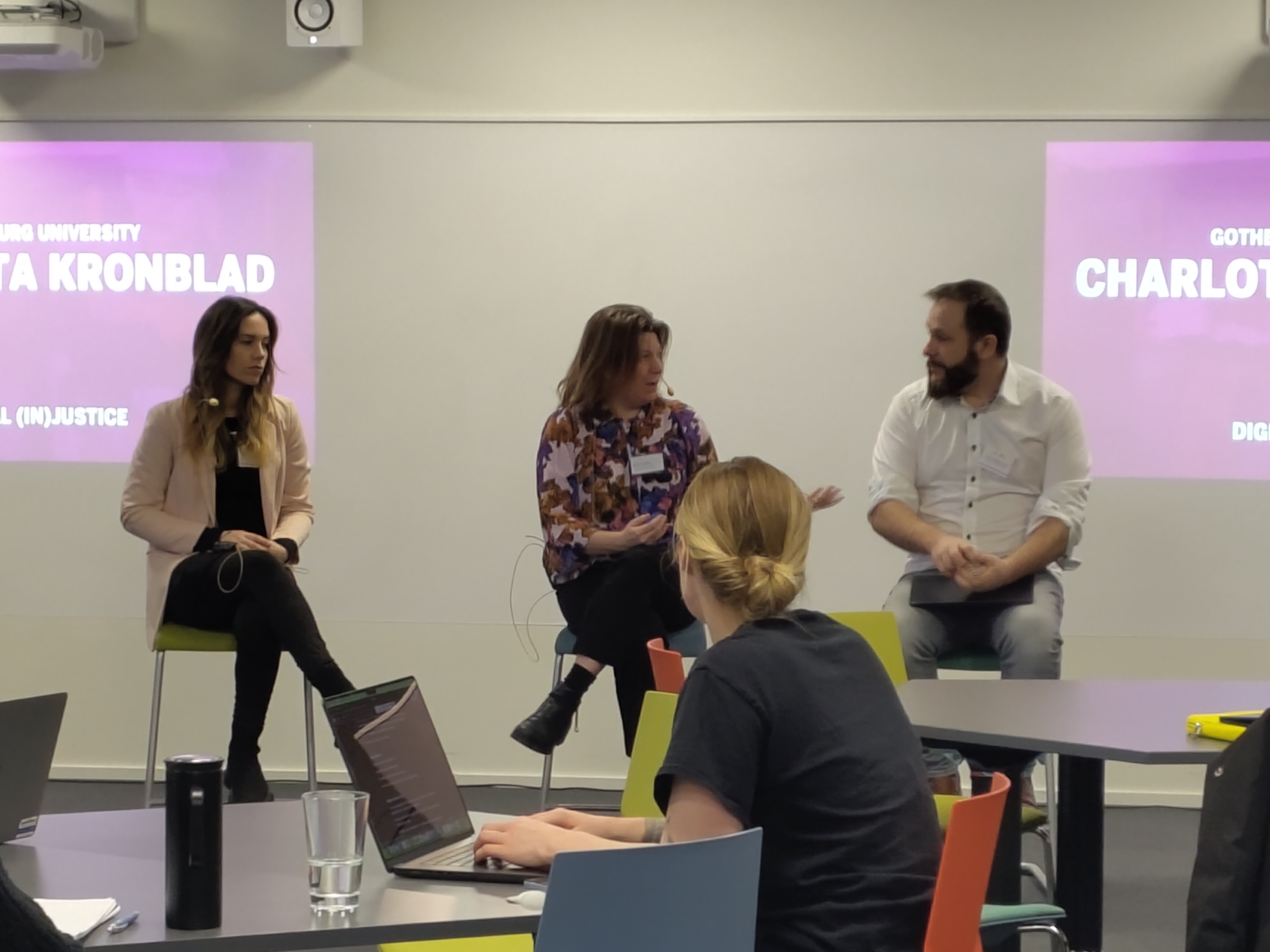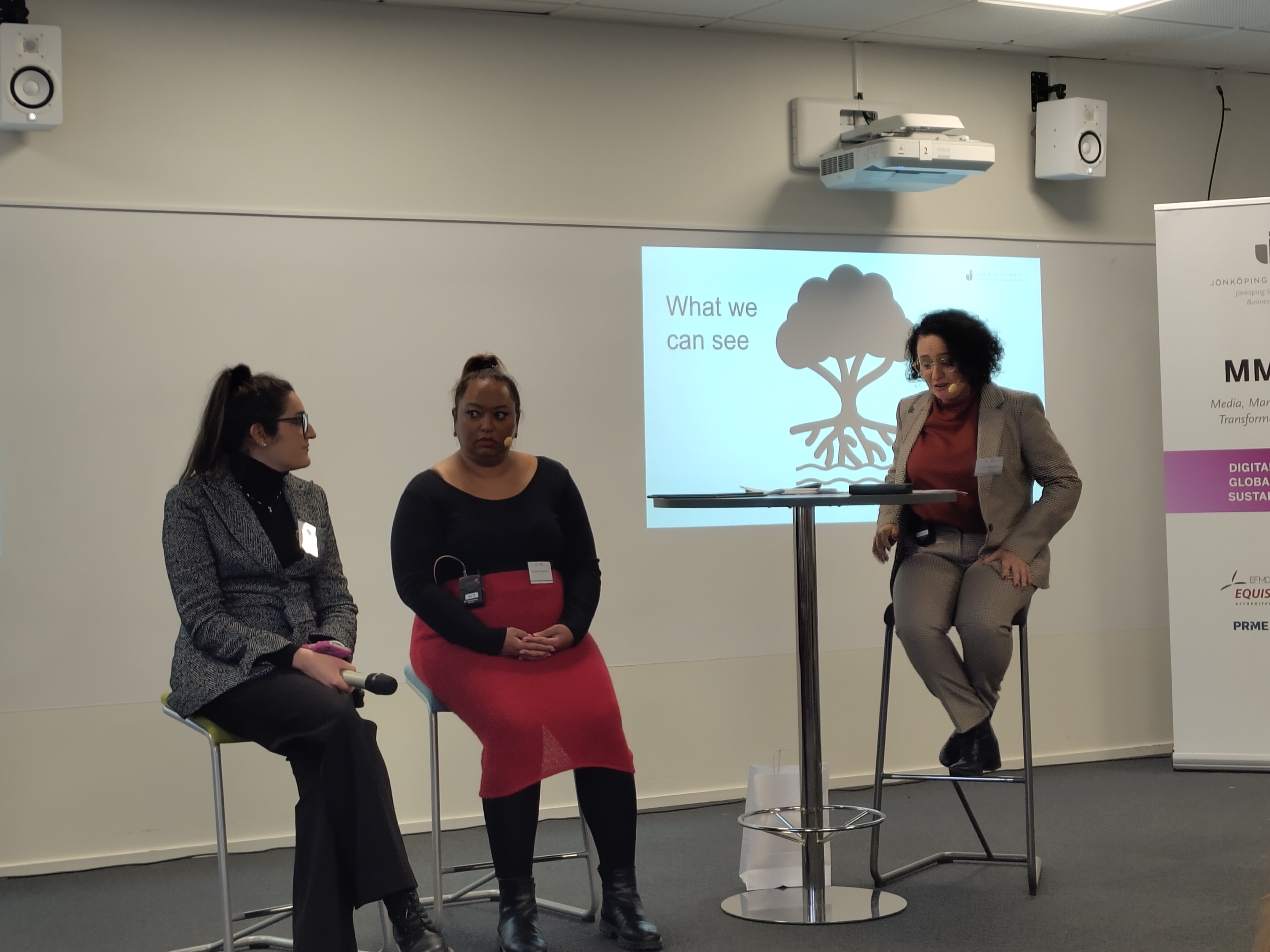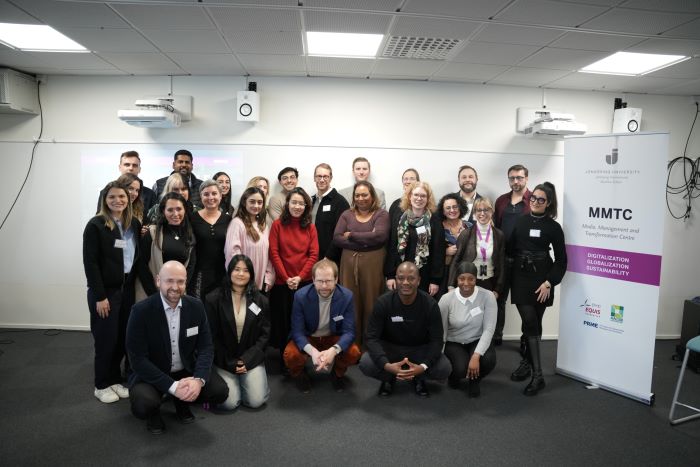Reflecting on the Future of Responsible Digital Innovation
RDIS 2025 Brings Together Experts to Tackle Digital Responsibility

The Responsible Digital Innovation Symposium (RDIS 2025), held on January 30-31 at Jönköping International Business School (JIBS), successfully gathered a diverse group of researchers, practitioners, and students to explore the ethical, social, and environmental dimensions of digital innovation. Hosted by the Media, Management, and Transformation Centre (MMTC), the event sparked conversations on digital responsibility.
Thought-Provoking Discussions & Key Takeaways
The symposium’s structure, blending rapid-fire provocations with interactive group discussions, led to deep engagement across four key thematic areas:
🔹 Digital Equity: Power, Representation, and Accountability
Speakers, including Mathilda Åkerlund (Gothenburg University), Yuliya Khvatsik (JIBS) and Maria Arango-Kure (JIBS), explored how algorithmic biases, access barriers, and digital governance shape power dynamics in the digital world. The session emphasized the need for more inclusive innovation policies and transparency.
🔹 Work Disrupted: Automation, Agency, and Adaptation
Noel Duarte (Beetroot Academy), Peter Njekwa Ryberg (JIBS) and Prince Johnson (JIBS), provoked our thinking and led discussions focused on the rapid transformation of labor markets due to AI and automation, balancing technological efficiency with worker agency and rights.

🔹 Breaking & Rebuilding: Digitalization and Trust in Institutions
Trust in digital governance was at the forefront, with Johann Magnusson (Swedish Center for Digital Innovation), Korinzia Toniolo (Stockholm School of Economics), and Charlotta Kronblad (Gothenburg University) addressing the challenges institutions face in maintaining public confidence. Case studies highlighted both successful digital transformations and failures that eroded trust.
🔹 Green Tech, Gray Areas: Digital Futures in a Finite World
Shazia Hussenbux (Dometic) and Matilde Messina led discussions around balancing digital innovation with ecological responsibility, examining issues such as energy consumption in AI and the unintended environmental consequences of digitalization.
A Space for Collaboration & Future Action
Beyond the formal sessions, the symposium fostered meaningful networking opportunities, with participants from academia, industry, and the public sector exchanging ideas on how to integrate responsibility into digital innovation. The Speakers’ Dinner on January 30 provided a platform for deeper discussions and potential collaborations.
Looking Ahead
As the symposium concluded, one key message resonated: "Technology is neither good nor bad; nor is it neutral." The discussions at RDIS 2025 reinforced the importance of designing digital solutions with ethical foresight, systemic awareness, and social responsibility.
The organizing team, including Maria Arango-Kure, Matilde Messina, and Prince Johnson, expressed their gratitude to attendees and emphasized that the dialogue does not end here. Follow-up initiatives, publications, and future symposiums will continue to build on the insights gained at RDIS 2025.
For upcoming events, visit the MMTC events page


